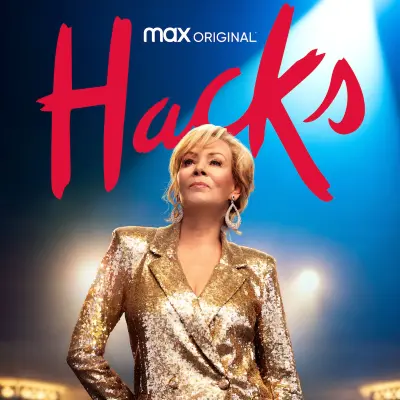Hacks proves women on TV don't need to have a redemption arc
-

"Ava is spoiled, self-obsessed, and newly canceled for an ill-advised tweet," says Emily Alford. "Her girlfriend has left. Her former friends call her a self-serving opportunist. But Hacks isn’t a show about Ava becoming less of an a**hole, it’s a show about doubling down on the characterization by giving her a soulmate in veteran Boomer comedian Deborah Vance. Deborah is spoiled, self-obsessed, and her long-standing Vegas show is about to be canceled. Her daughter sells her photos to tabloids for extra money, and in exchange for the abysmal parenting job Deborah has done, it seems like a fair trade. Her only friends are on her payroll. When she and Ava meet in the first episode it’s to point out the ways that each are delusional about their own importance: Deborah’s prized home decor is tacky; Ava’s carefully crafted tough-girl clothing makes her look like a Victorian urchin. They bond over perfecting a punchline about a closeted Senator, and the series begins, giving its audience no clear moral or redemption arc for these assholes trying to make their way in a world full of them. Their relationship grows in that the two come to hate each other less, but by the end, Ava will still leak secrets about Deborah just like her daughter does and Deborah is still capable of slapping Ava across the face. The narrative arc of the series isn’t how human their relationship makes them; it’s how they use their relationship to discover which narrative is most marketable. In prestige television, this 'how bad is this character going to be' premise isn’t novel. Breaking Bad, The Sopranos, and Curb Your Enthusiasm are all successful television shows about the thrill of watching 'bad' people navigate the world. The only difference in Hacks is that the two characters are women, but the change makes all the difference in a show that becomes a meta-commentary on the way stories about women are allowed to be told. It’s not that women on television are never terrible people. But in a series like Girls, the main characters’ privileged narcissism is written as a growing pain. For a series like Fleabag, it is a result of trauma ultimately requiring the main character to forgive herself in order to heal. Hacks couldn’t give less of a sh*t about excusing or negating the awfulness of its two women leads and instead focuses on two women artists looking for new ways to market their trauma, something that women artists are asked to do again and again, just like Ava and Deborah. Their industry is predatory, but they’re also looking to sell out. Ultimately, the series is a darkly comic look at what that sale looks like in the current cultural zeitgeist that ignores the common impulse to teach women characters a lesson." ALSO: Non-binary Hacks star Carl Clemons-Hopkins says taking away gender labels helped them become a better actor: "It was kind of freeing, actually."
TOPICS: Hacks, HBO Max, Hannah Einbinder, Jean Smart
